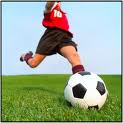In any major soccer championship like the Soccer World Cup of 2010 in South Africa, a tie breaking shoot out is a common sight in that tournament and how it can be annoying to a player in performing such task.
Norwegian researchers have come up with statistics regarding the pros and cons of player’s behavior in the playing field during soccer tournament. It has dealt more on the psychology of soccer in general.
With their intensive and detailed study of the same, herewith are their findings:
*** Kick takers in a shootout score at 92% rate, when the score is tied and a goal ensures an immediate win.
*** When they need to score to tie the shootout, with a defeat the success rate drops to 60%.
*** Shooting percentages tend to drop with each successive kick: 86.6% for the first shooter; 81.7% for the second; and so on.
*** Based on the last seven World Cup tournaments, 10 out of 14 teams that came into the finals had to win a shootout along the way.
*** Penalty kick represents a relatively simple task for a professional soccer player, that is scoring a one-on-one against the goal keeper from 12 yards at his own pace, and yet the shootout has become surprisingly an obstacle of doing it right for the player. Why is it player get it wrong so often? Research suggests that a familiar trending is happening and that is pressure engenders anxiety, in turn, affects player’s performance.
A growing number of scientists are studying penalty kicks particularly when the player is out of focus in the field where in its recent studies, it gives importance to visual attention and gaze control. Visual attention, is the ability to zero in a specific subject despite vast amount of sensory information. The main point of the research is when throwing or kicking a ball, you train your eye where you wanted the ball to go.
In a published item from journal Human Movement Science, researchers in Amsterdam demonstrated this concept in soocer using head mounted infrared eye tracking cameras. They found that shooters who were reminded to kick away from the goalkeeper, rather than to shoot accurately or open into space, spent less time concentrating on their target and scored fewer goals.
Geir Jordet, a professor at the Norwegian School of Sport Sciences in Oslo, after having reviewed with colleagues, the videos of every shootout from each World Cup, European Championship and Copa America since 1978 has this to say: a player who celebrates demonstratively after scoring increases the chance that his teammates will score later in the shootout and also increases the likelihood that the opposing soocer player who shoots after him will miss.
